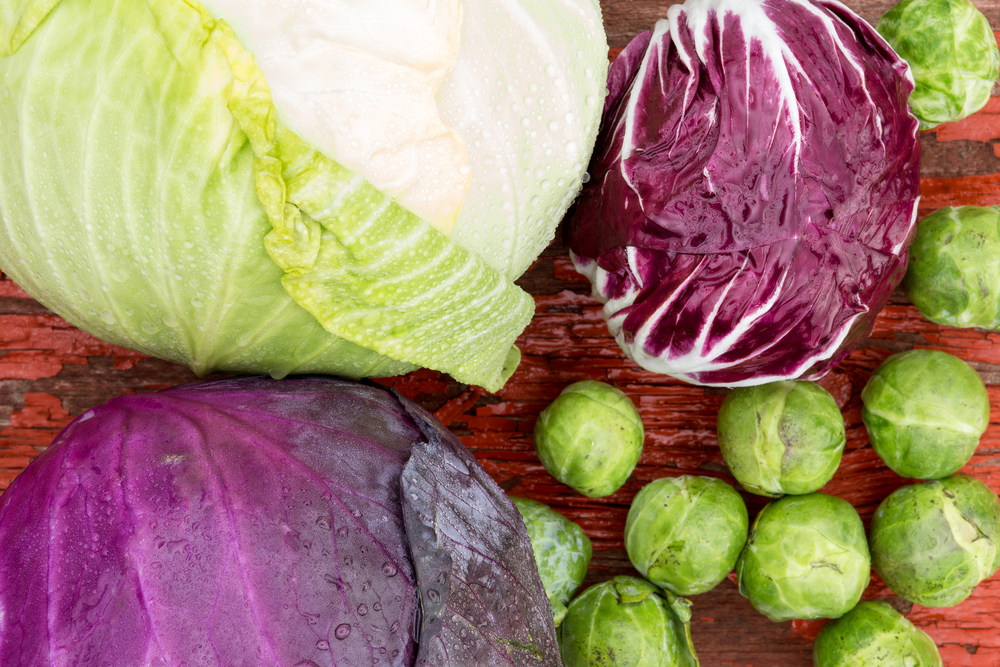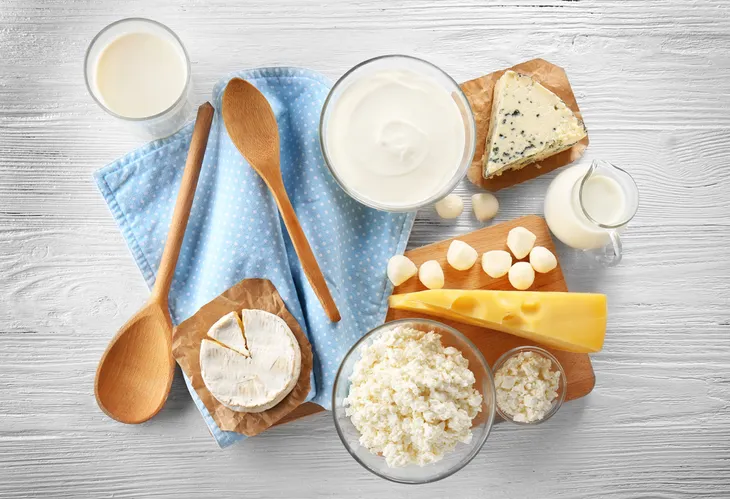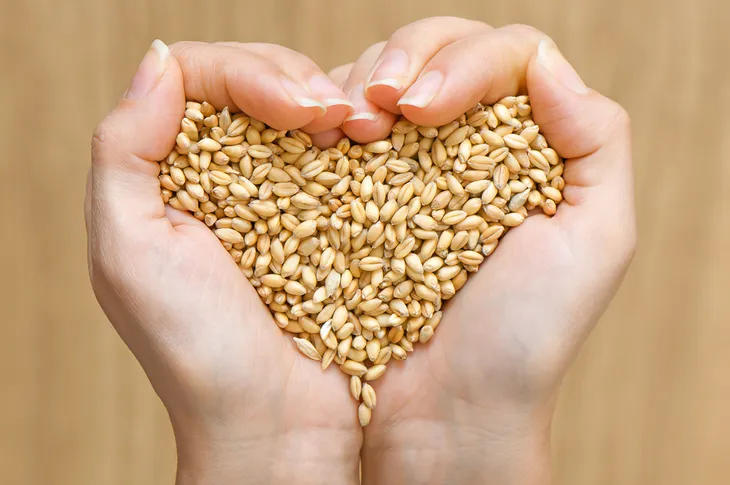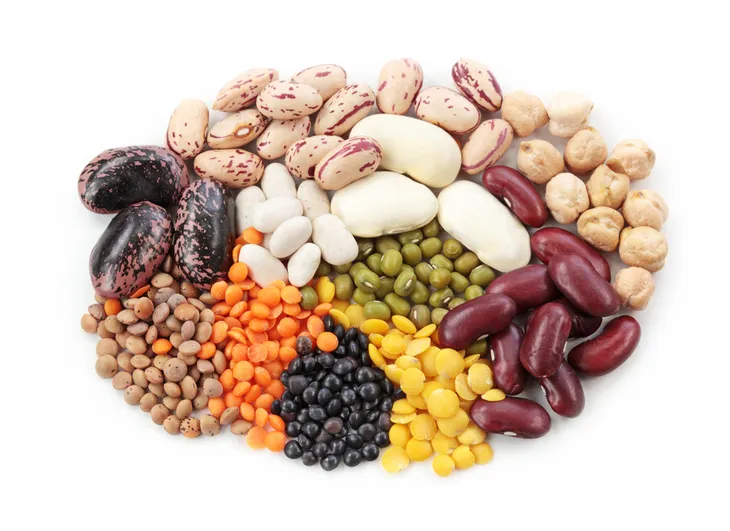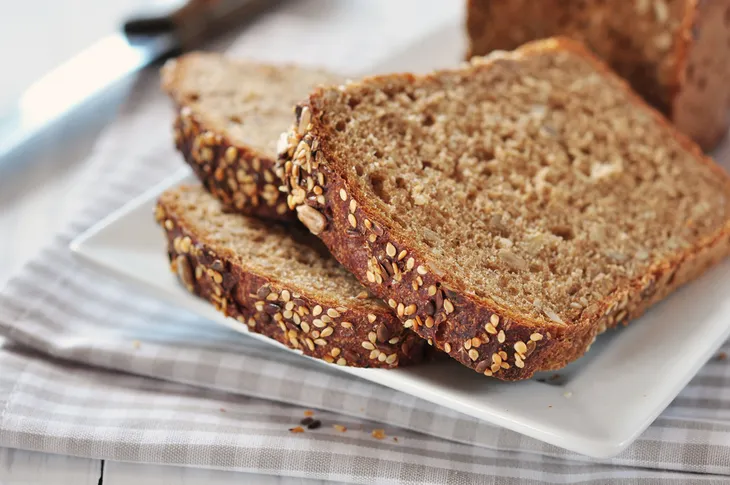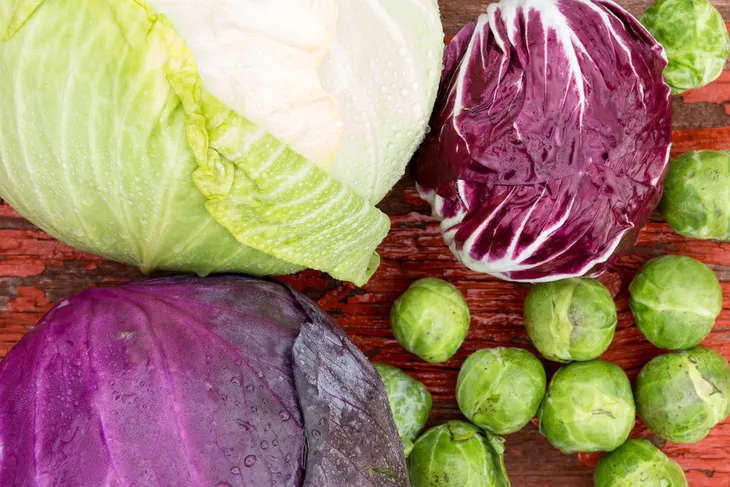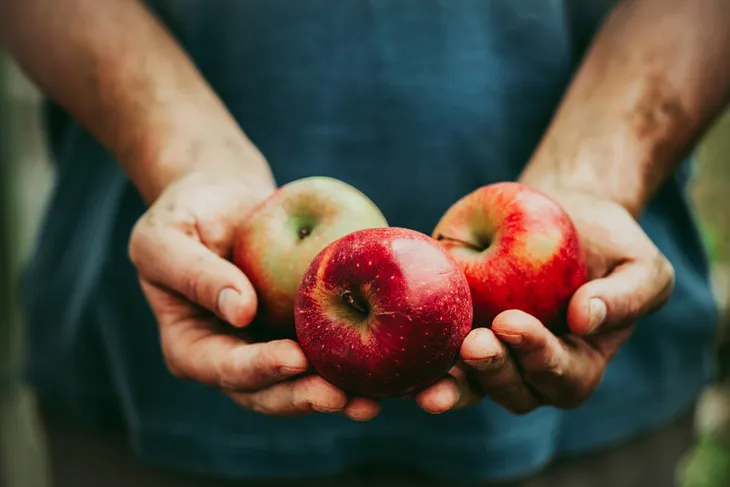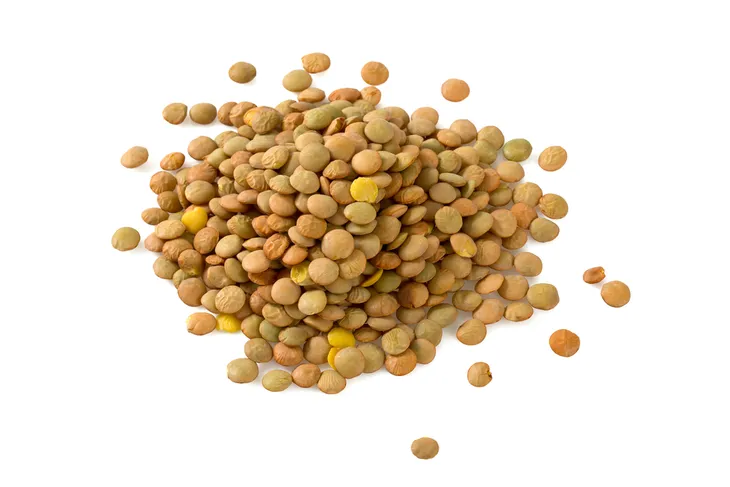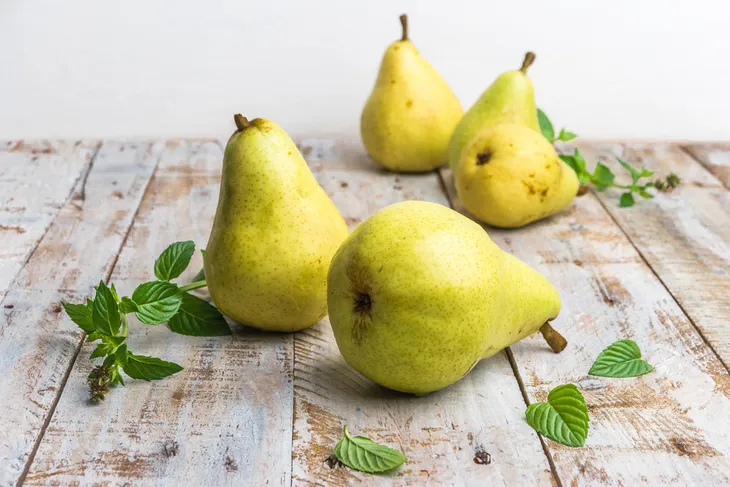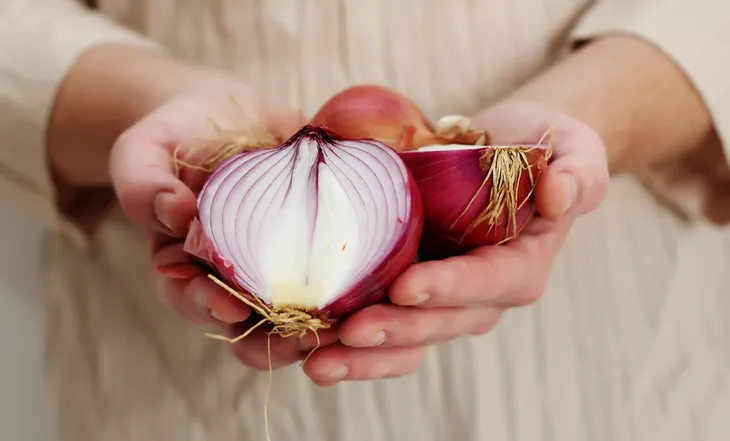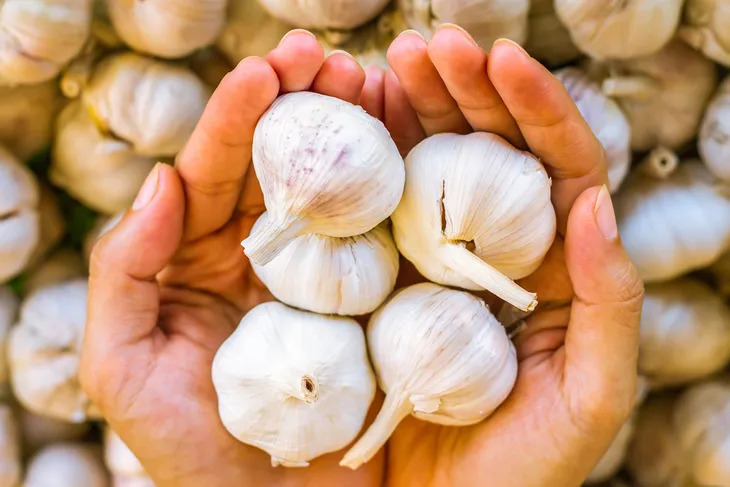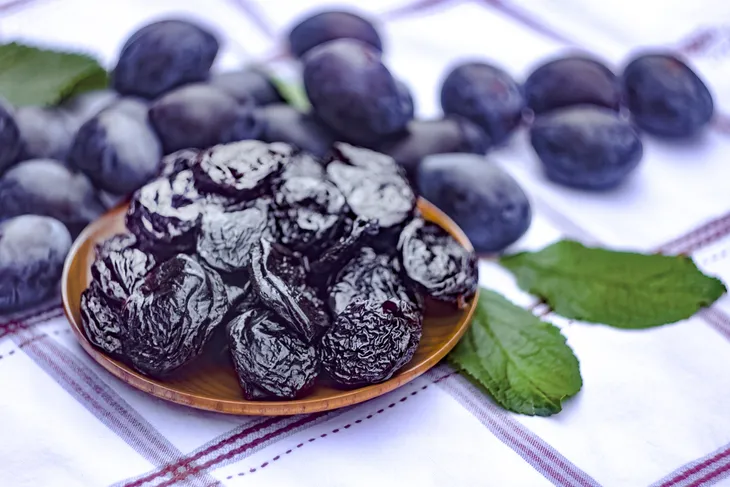Nobody likes feeling bloated. It’s uncomfortable, unflattering, and downright annoying! What makes bloating even more frustrating is when it happens after eating lots of healthy, nutritious foods. You’d think bloating is associated with an unhealthy diet (it most definitely can be), but there are also many superfoods that can cause our pants to get tighter.
We’re told to eat healthy in order to lose weight, but then healthy foods cause us to bloat! We know, it’s frustrating. The reason for this is because most of these healthy foods are full of fiber and while fiber is an important part of a healthy diet, too much of it can cause problems in the GI tract as they are a little more difficult to digest. This results in a lot of gas.
Even though the following 12 foods can cause bloating, this doesn’t mean we should eliminate them entirely from our diet. This list will hopefully shine a light on what foods cause bloating so that we can plan accordingly and avoid overloading on too many at a time…
Want diet & nutrition content delivered straight to your inbox? Sign up for our exclusive diet & nutrition newsletter!
Dairy
Most people consume some kind of dairy throughout the day and that’s a good thing because it’s high in protein and calcium! What’s great about dairy is that there are so many different products and types of dairy to choose from. Some of the healthiest include milk, yogurt, and cheese. While dairy does come with lots of health benefits, it also brings on some side effects, like bloating.
Healthline writes that 75-percent of the world’s population “can’t break down lactose, the sugar found in milk. This condition is known as lactose intolerance.” The National Institutes of Health (NIH) describes the symptoms of lactose intolerance as “digestive symptoms—such as bloating, diarrhea, and gas—after eating or drinking milk or milk products.”
Do you get bloated after eating dairy? Don’t worry — there are still lots of options! Healthline notes that people who are lactose intolerant can sometimes handle dairy products like cream, butter, or yogurt. Also, nowadays there are also many lactose-free products available and alternatives like coconut, almond, soy or rice milk.
Barley and Rye
Healthline describes rye as a cereal grain related to wheat, we’ll get into wheat more later. Rye is a great source of fiber, manganese, phosphorus, copper and B-vitamins. The problem with rye is that it contains the protein gluten which many people have a sensitivity or intolerance to. For those people, eating rye can cause bloating. To avoid this, try eating things like oats, brown rice, buckwheat or quinoa instead.
The other source of bloating is barley which is another commonly used cereal grain, says Healthline. Again, barley is extremely healthy because it’s high in fiber, as well as vitamins and minerals like molybdenum, manganese and selenium. “Because of its high fiber content, whole grain barley may cause bloating in individuals who are not used to eating a lot of fiber,” writes the source. Just like rye, barley contains gluten so it has the potential to cause a lot of stomach upset in certain people.
Beans and Legumes
Ever heard the little saying, “beans, beans, the magical fruit, the more you eat, the more you toot!” Turns out there’s some truth to that! Beans and legumes are notorious for causing bloating and gas. This is due to the fact that both beans and legumes (i.e, lentils and chickpeas) contain carbohydrates known as oligosaccharides, which can be troublesome to digest. “Beans contain sugars called alpha-galactocides, which are fermented by gut bacteria in the colon,” says nutritionist Fiona Tuck to Huffington Post. “The fermentation process can produce gas in some people, leading to bloating.”
Not to worry, we don’t need to nix these foods entirely from our diet. To combat any gas and bloating, Huffington Post offers a few tips and tricks. If they are canned, make sure to rinse them thoroughly. Empty the can into a strainer in the sink and run cold water over them. You’ll know when they’re ready ones the “soapy” film disappears. If they are dried, be sure to soak them well before cooking, advises Tuck.
Wheat
People are eating less wheat these days and this is mostly due to a little protein called gluten. Gluten has been catching a bad rap lately! For some it’s due to a general intolerance, but for others it’s because they want to avoid gaining weight. Despite the controversy around gluten, it’s still a hugely common household food that isn’t going anywhere anytime soon! Wheat can be found in so many popular foods like bread, tortillas, pizza, pasta, as well as baked goods, biscuits, pancakes and waffles, says Healthline.
Similar to dairy, there is a common intolerance around gluten going around. People with celiac disease or a gluten sensitivity will get all kinds of uncomfortable digestive symptoms when they eat wheat. They’ll experience bloating, gas, diarrhea, and stomach pain, explains the source. Not only that, but Healthline also points out that wheat is a major source of FODMAPS, “which can cause digestive problems in many people.”
To avoid the bloating caused by wheat, Healthline suggests options for any of the many gluten-free alternatives like pure oats, quinoa, buckwheat, almond flour, and/or coconut flour.
Cruciferous Vegetables
Like whole grains, certain vegetables of the coniferous variety—namely cabbage, cauliflower, broccoli, and kale—can leave a person gassy and bloated. Yuck! The reason for this is because they contain raffinose, “a sugar that remains undigested until bacteria in your gut ferment it, which produces gas and, in turn, makes you bloat,” writes Health.com. Avoiding these foods isn’t really an option because they’re also super healthy! Cynthia Sass recommends eating more nutrient-rich, high fiber foods so that your digestive system isn’t so sensitive and won’t react so aggressively with bloating.
Another great way to combat bloating while eating cruciferous vegetables is to eat them in smaller portions. You can also steam it. “Cooking any vegetable softens the fiber and shrinks the portion as some of the water cooks out, so it takes up less space in the GI tract,” says Sass to Health.com. Eating broccoli and cauliflower steamed won’t eliminate the bloating all together, but it will help reduce it because it makes the veggie easier to digest.
Apples
An apple a day may keep the doctor away (so they say), but it will also cause some major bloating. The reason apples cause so much bloating is because they are super high in fiber. They also contain fructose and sorbitol, these are the sugars that are found in fruit and many people can’t tolerate them, explains Cynthia Sass, MPH, RD to Health.com. When people have trouble digestion these sugars their digestive system will develop a buildup of bloating and gas which causes them to feel puffy. Research shows that this bloating may be worse for people who don’t include fiber in their diet on a regular basis.
Even though apples cause bloating, we shouldn’t stop eating them because Health.com explains they are super high in protein and just one apple provides about 10-percent of our daily recommended vitamin C content. “Eating apples specifically has been linked to a lower risk of heart disease and respiratory problems, including asthma, bronchitis, and emphysema,” says Cynthia Sass to the source. The best way to combat the bloating caused by apples is to eat them on their own. Don’t eat them at the same time as another meal. Also, try not to eat them if you know you’ll be in a situation where you’re uncomfortable afterwards, like if you’re going to be wearing a bathing suit or something form fitted.
Lentils
We already talked about beans and legumes, and lentils are pretty similar to them. In fact, lentils are actually considered to fall into the category of legumes. As such, they reap similar health benefits which include being high in fiber, protein, and all kinds of healthy carbs. They are also packed with minerals like iron, copper, and manganese. The bloating that sometimes follows lentils is due to their high fiber content. People who are particularly sensitive to fiber will suffer from a great deal of bloating after eating lentils. This mainly includes people who aren’t used to eating lots of fiber.
Another reason lentils cause lots of bloating is because they contain FODMAPS. “These sugars may contribute to excessive gas production and bloating,” writes Healthline. “However, soaking or sprouting the lentils before you eat them can make them much easier on the digestive system.”
Pears
Pears are a totally underrated fruit. They often get overlooked for other similar fruits like apples or plums, but pears are delicious too! And easy to snack on might I add as they are just grab and go. In addition to that, they’re super healthy! They have lots of soluble fiber, they help keep our cholesterol low and full for longer. The only downside is that they contain sorbitol, “a sugar alcohol that can occur naturally and is also added into things like chewing gum,” writes Women’s Health. This type of sugar can help keep our digestive system moving, but can also cause bloating.
“Since sorbitol is absorbed more slowly into the small intestine than other varieties of sugar, it can pass into your colon, where it ferments — which can cause bloating, gas, and cramps in some people,” writes the source. “Unfortunately, there’s no way to reduce the effects of this sugar alcohol other than to avoid it.” If you’re feeling bloated after eating pears, get out and exercise in order to move the gas through your body and reduce bloating.
Onions
Many of us cook and eat onions on a regular basis. They are a cooking staple as they add wonderful flavor and aroma to many dishes. The downside of onions is that they can cause bloating, particularly when they are eaten raw. The bloating effect of onions is due to the fact that they are high in FODMAPS. So what the heck are FODMAPS? Huffington Post explains that this means they are part of “a collection of short chain carbohydrates and sugar alcohols found in foods naturally or as food additives.”
Cherries, Grapes, Mangos, and Pineapple
Sweet fruits like cherries, grapes, mangos, and pineapple are tasty and among the most popular to eat. While they are super tasty, they cause a great deal of bloating. According to Women’s Health, a lot of this bloating is due to the amount of natural sugar in these fruits.
“Occasionally, some of that sugar doesn’t get completely absorbed in the small intestine — so it ends up getting stuck in the large intestine and causes you to fill up like a parade balloon,” writes Women’s Health. “The best way to help your body completely digest all of the sugar so it doesn’t make its way into the large intestine is to chew these fruits as thoroughly as possible.” The source recommends sticking to a moderate serving to limit the bloating. The moderate serving would be about 1-cup per day. This way the amount of carbohydrates and sugars is limited so the body doesn’t feel as “puffy” for the rest of the day.
Garlic
Garlic is a cooking staple, there’s no way any of use are giving up this tasty food! While it’s super delicious and even provides some of its own health benefits, it can cause bad breath and…bloating! Similar to onions, “garlic contains fructans, which are FODMAPs that can cause bloating,” says Healthline.
Not only that, but just like gluten and dairy, there are many people out there who have an intolerance to the compounds found in garlic. The symptoms of this intolerance are those commonly associated with difficulty in the digestive system — bloating, belching, and gas.
Dried Fruit: Apricots, Raisins, and Prunes
Most of us already know that prunes are useful for those who need to make a few more trips to the bathroom to, well, you know. While prunes can help with constipation, they can also cause major bloating. This is also true for dried apricots and raisins. The reason for this is because of their sugar and fiber content which is so concentrated.
While our colon loves this, our digestive system. doesn’t. “Those little guys get to work fermenting the sugar and fiber that didn’t get digested and produce gas, which makes you feel four months pregnant,” writes Women’s Health. “When indulging in this sweet fruit, make sure you consume it with extra water to keep your bowels moving and help eliminate bloat.”
